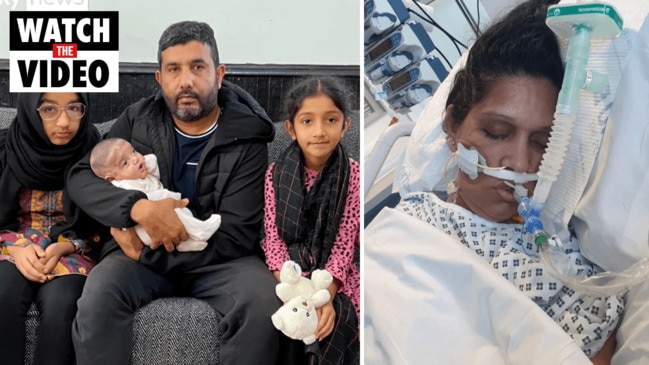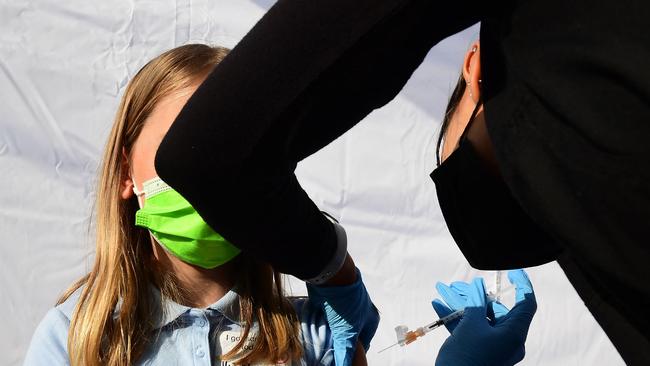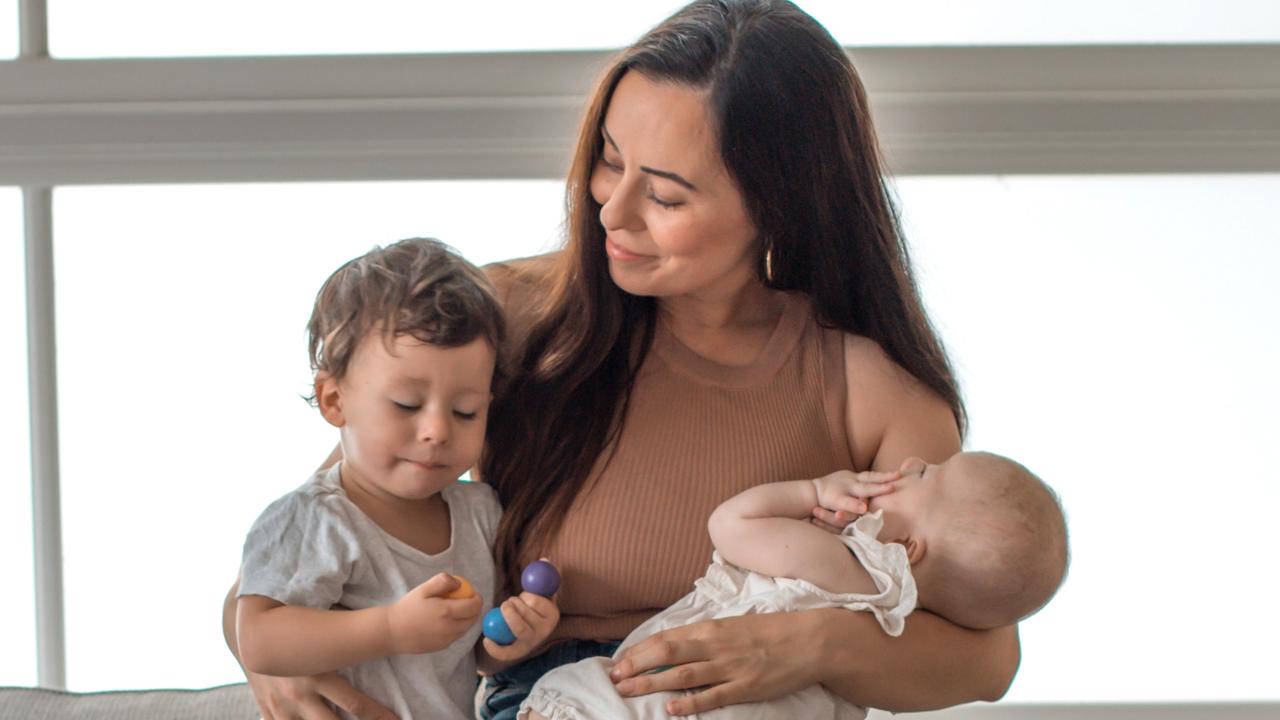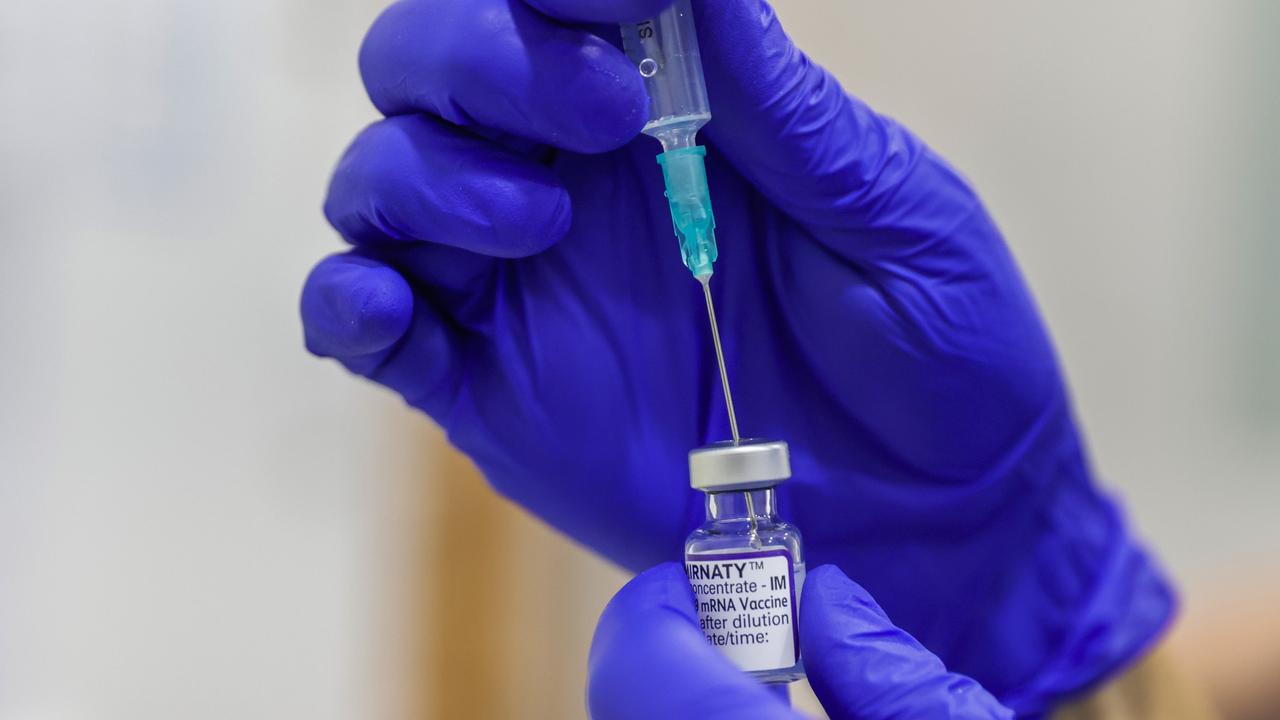Scott Morrison says the Pfizer vaccine for young children is not yet approved
Prime Minister Scott Morrison says more research is needed before the federal government grants approval to Pfizer for its vaccine for children.

NSW Coronavirus News
Don't miss out on the headlines from NSW Coronavirus News. Followed categories will be added to My News.
Australia will be “cautious” in approving Pfizer’s Covid-19 vaccine for children aged five to 11 with health officials considering waiting until there is more data out of the US before giving the green light.
Despite being ineligible for vaccination, younger students may still avoid missing large amounts of school if exposed to Covid-19 after new modelling found daily rapid antigen testing was as effective at preventing outbreaks as a seven-day quarantine.
Prime Minister Scott Morrison said national cabinet discussed the vaccination of younger children on Friday, and were advised the Therapeutic Goods Administration and Australian Technical Advisory Group on Immunisation (ATAGI) “have not yet formed a medical opinion that that should proceed at this point”.

“The studies … that led to the (approval) decision in the United States were based on a sample of some 3000 individual cases,” he said.
“Now vaccinating children aged 5 to 11, you know, we need to be very careful. We need to be very cautious. And I can tell you that we won’t take a further step on this unless there is clear medical advice that it should proceed.”
It is understood ATAGI may consider waiting for more real-world data from the US.
Mr Morrison said the government had been advised by Australia’s chief medical officer “the incidence of serious disease among younger children with Covid is not the same for the rest of the population”.
“So the risk is different for children aged 5 to 11 compared with those who are older,” Mr Morrison said.
Premier Dominic Perrottet said the approval was up to the federal government but NSW was already making preparations in anticipation.
“What is important from a state’s perspective is that when those changes are brought in, that NSW is ready,” he said.
Even if younger children are slower to receive a vaccine, they may still soon avoid going into quarantine if identified as a close contact of a Covid-19 case under a new proposal to keep kids in class.
The Doherty Institute has recommended states implement a “test-to-stay” approach in schools to prevent virus outbreaks after modelling showed it was as effective as requiring seven days of isolation.

Head of modelling and biostatistics at the Burnet Institute, Nick Scott, said under the approach students would only be sent home if they tested positive to Covid-19.
“What we found was that the seven-day quarantine and the seven-day test to stay were approximately equivalent in terms of infection outcomes and outbreak risk,” Dr Scott said.
“But the seven-day test-to-stay strategy had the considerable additional benefit – there were much less days of face-to-face teaching lost.”
He added even if compliance was low, the test-to-stay approach outweighed quarantine options.
“With lower compliance, it was slightly less effective, but there wasn’t a huge drop off or a threshold for that,” Dr Scott said.





